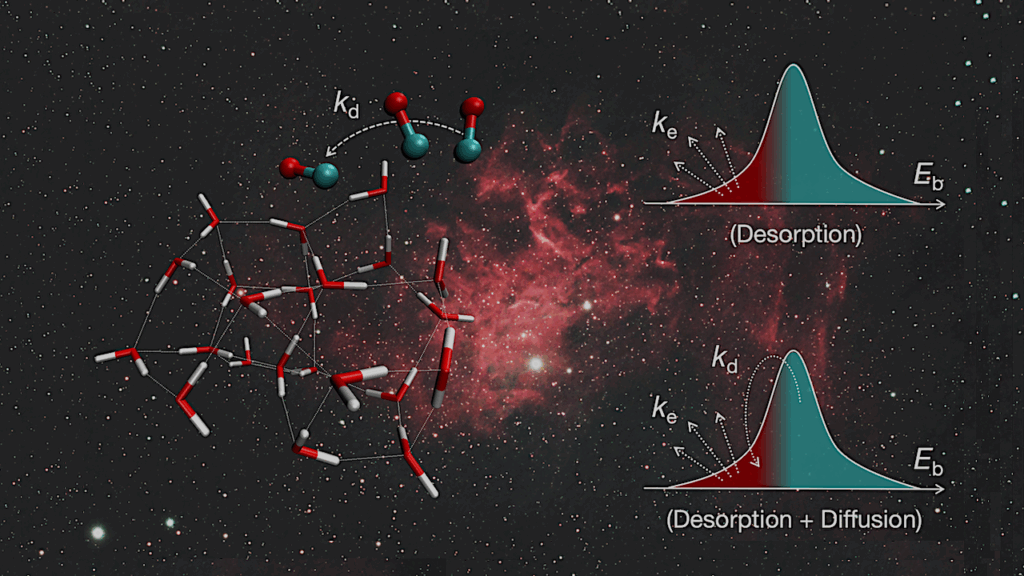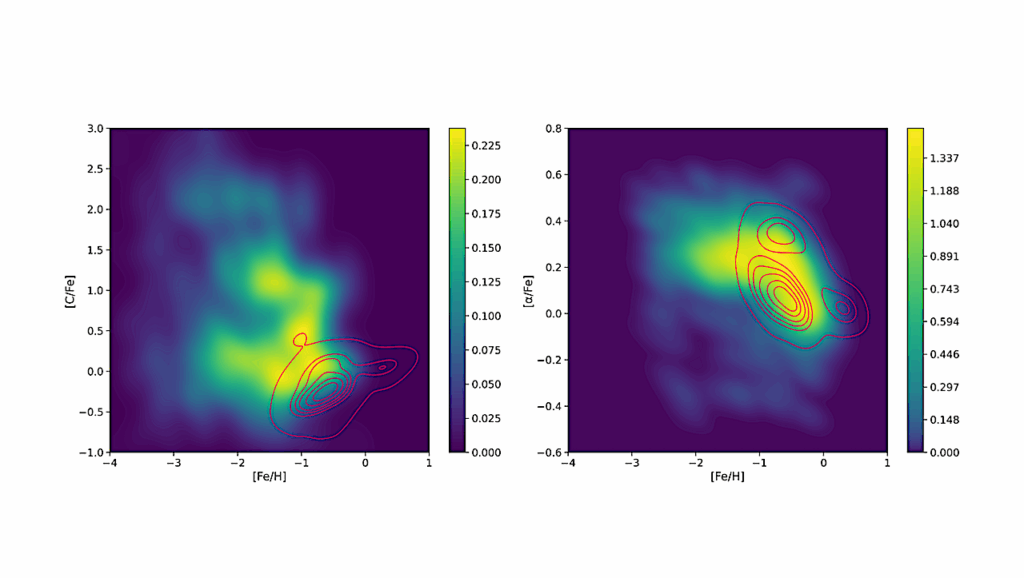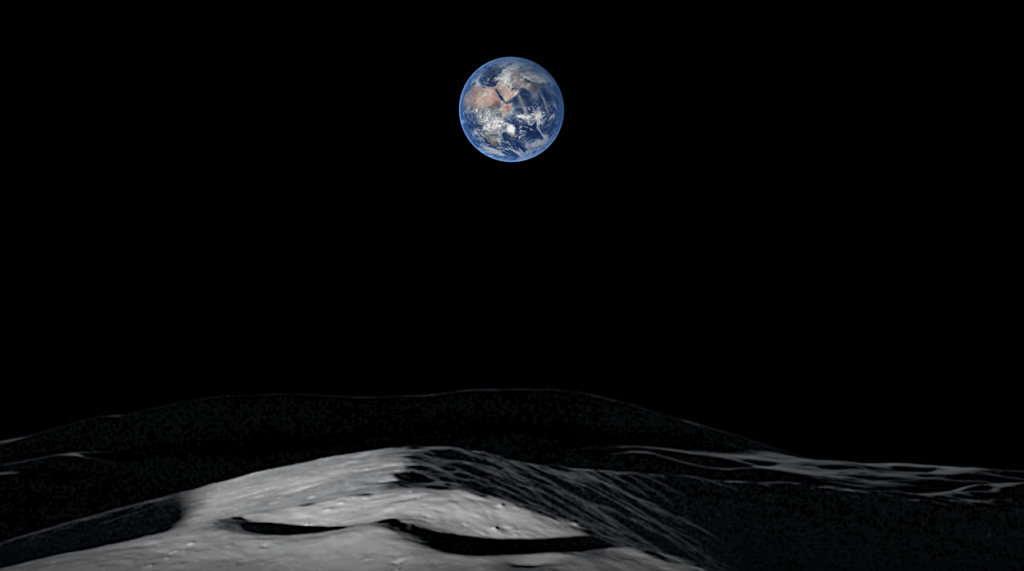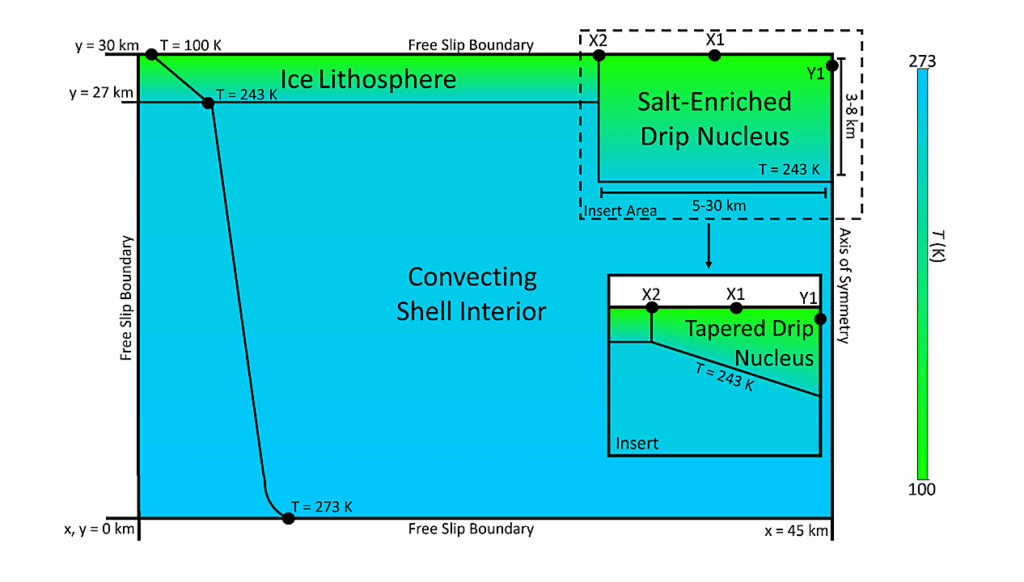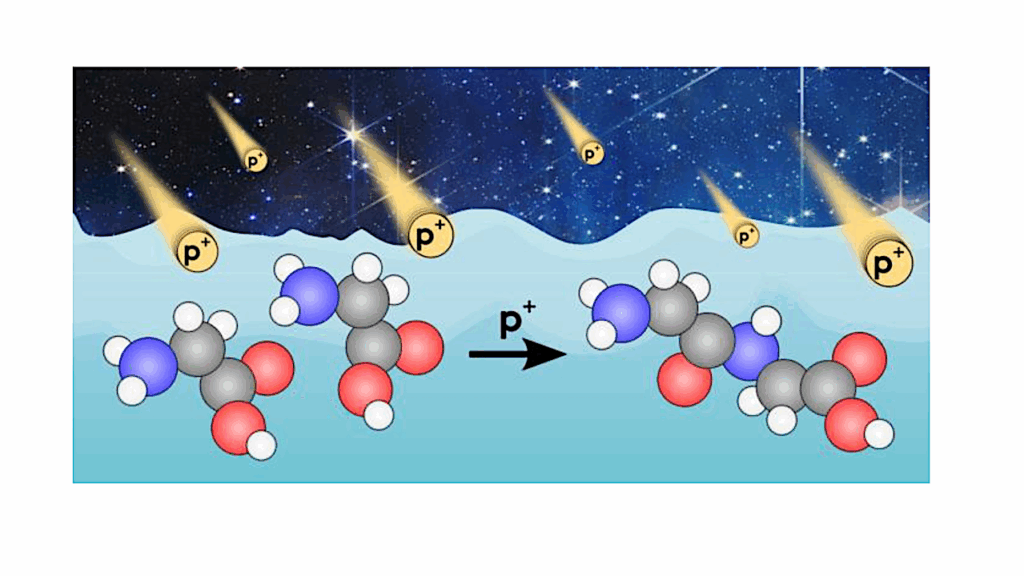Quantum Tunneling Could Enable Proton Transfer Reactions on Titan

The surface of Titan, Saturn’s largest moon, is rich in organics and is often suggested to model early Earth environments.
Titan’s surface is cold, at a temperature of approximately 90 K, which prohibits most thermally activated chemical reactions. However, quantum effects become more important at low temperatures and reactions that are classically prohibited can often proceed through quantum mechanical pathways.
Using path integral molecular dynamics simulations, we investigate nuclear quantum effects on the thermodynamics of model proton transfer reactions in liquid ethane.
We find that proton transfer can occur at Titan surface conditions through quantum tunneling. Consequently, we estimate that nuclear quantum effects can enhance reaction rates by many orders of magnitude. Our results suggest that nuclear quantum effects could facilitate prebiotic chemistry on Titan, and quantum effects should be considered in future investigations.
Henry W. Longo, Richard C. Remsing
Comments: 7 pages 4 figures
Subjects: Chemical Physics (physics.chem-ph); Earth and Planetary Astrophysics (astro-ph.EP); Statistical Mechanics (cond-mat.stat-mech)
Cite as: arXiv:2405.19195 [physics.chem-ph] (or arXiv:2405.19195v1 [physics.chem-ph] for this version)
Submission history
From: Richard Remsing
[v1] Wed, 29 May 2024 15:35:09 UTC (849 KB)
https://arxiv.org/abs/2405.19195
Astrobiology


